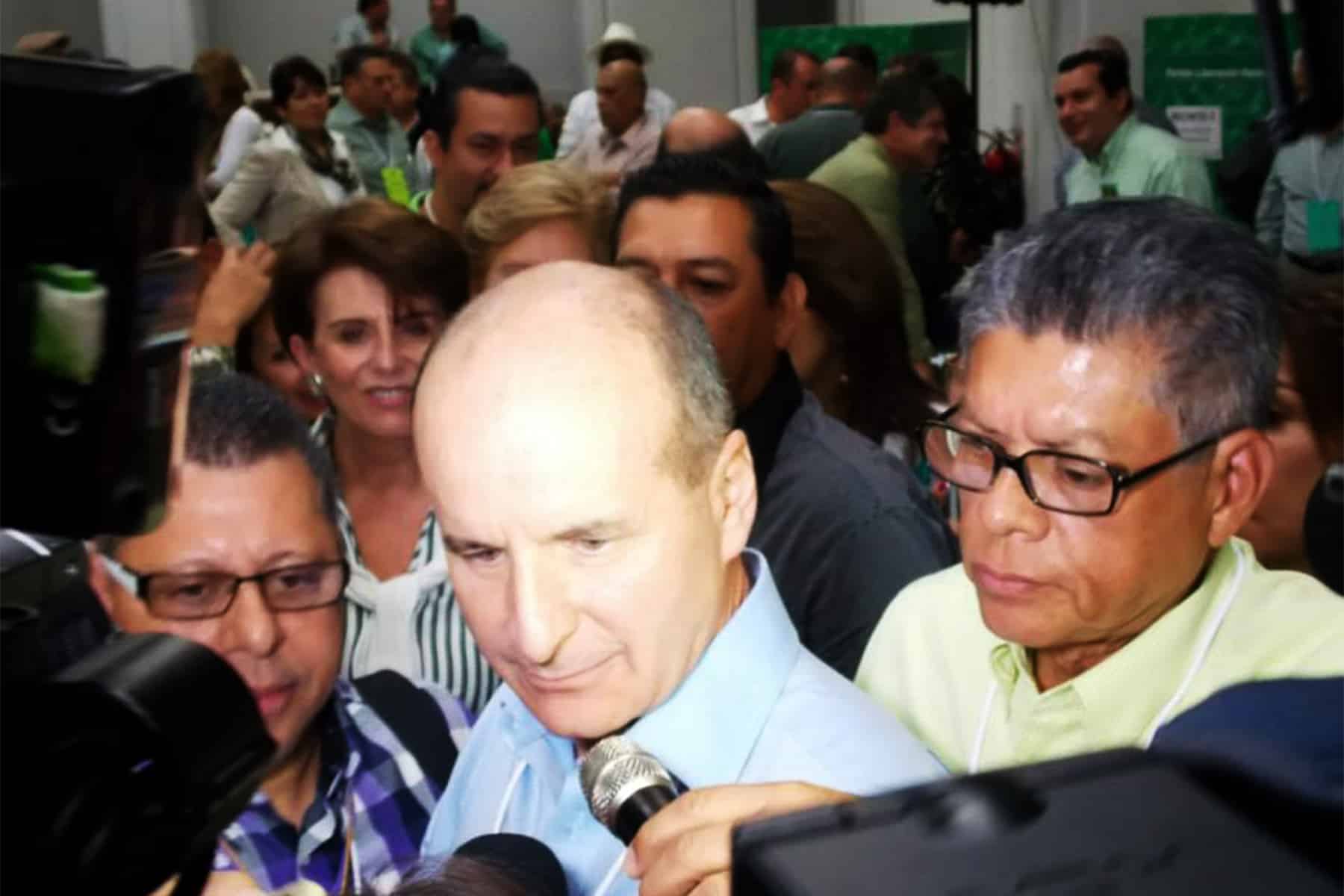CHIEF Prosecutor Francisco Dall’Anese on Wednesday announced his office has launched an investigation to determine whether former Costa Rican President José María Figueres (1994-1998) has disobeyed public authority by refusing to return to Costa Rica and testify before the Legislative Assembly. Figueres, who resides in Switzerland, has failed to appear before the assembly’s Public Expenditures Commission on four occasions – most recently last week – since legislators first asked him to testify in November.
The commission’s members want Figueres to explain why he accepted funds from Alcatel, a global telecommunications firm implicated in a high-profile government corruption case here. The former head of state maintains the “consulting fees” he received in 2001, a total of $906,000, are legitimate, and accused legislators this week of using the situation for political gain.
If a judge opens a penal case against Figueres as a result of the Prosecutor’s Office investigation, and Figueres continues to refuse to testify, the judge would be able to issue an international capture order for the former director of the World Economic Forum.
FIGUERES resigned from his post at the Switzerland-based economic forum in October 2004 after Costa Rican dailies revealed the payments from Alcatel, the same company accused of making illegal payments to former Costa Rican President Miguel Ángel Rodríguez (1998-2002) and other public officials in connection with the company’s $149 million contract here. Rodríguez, who stepped down from his post of Secretary General of the Organization of American States (OAS)when allegations of corruption surfaced against him, is in preventive detention in a prison north of San José while authorities investigate the accusations.
The payments to Figueres were in violation of the economic forum’s regulations. SEEKING an explanation of the payments, the Public Expenditures Commission asked Figueres to appear on Feb. 3. After the commission’s seven legislators waited in vain once again, they decided to denounce the former head of state before the Prosecutor’s Office for “disobedience of public authority. ”Article 307 of the Penal Code defines such disobedience as a crime, punishable with 15 days to one year in prison.
On Tuesday, true to their word, commission members strode down the pedestrian mall between the assembly building and the Judicial Branch complex in San José to present their complaints in a letter to Dall’Anese. Dall’Anese announced the opening of an investigation into the matter in a statement the next day. Judicial Branch spokeswoman Sandra Castro told The Tico Times that the Prosecutor’s Office is also analyzing documents related to the Alcatel payments Figueres accepted.
THIS is not the first-time legislator shave tried to involve authorities in their attempt to bring Figueres home. In December, Public Security Minister Rogelio Ramos contacted Interpol at the request of legislators, but Interpol representatives said they cannot take action unless a judge has issued a capture order for Figueres (TT, Dec. 10, 2004). FIGUERES scoffed at the commission’s attempts to force his return.
“I don’t have any interest in getting myself in the middle of a political game, and that is what they are trying to do, in many different ways,” Figueres said this week in an telephone interview from Madrid with Radio Monumental’s “Nuestra Voz” program. The fact that legislators accuse Figueres of disobedience “is a position that doesn’t fit and shows the political interest they have in this,” he added. Asked during the radio interview if he plans to return to Costa Rica, Figueres said, “Of course I will arrive, and of course I have the greatest interest in clearing up all the matters related to all this. ‘
However, he did not specify a date. WHETHER the Alcatel payments are legitimate or not, Figueres apparently failed to report them on his income tax declaration (TT, Nov. 5, 2004). He recently paid Costa Rican income taxes owed, plus interest, on the Alcatel payments, according to the daily La Nación.
News that Figueres accepted Alcatel fees surfaced in October 2004 – a dark month for former Costa Rican Presidents. Allegations that Figueres’ predecessor, former President Rafael Ángel Calderón, Jr.(1990-1994), and his successor, Rodríguez, accepted illicit funds, resulted in preventive detention orders for both.
Rodríguez stepped down from the OAS after less than a month on the job, saying he wanted to return to Costa Rica to deal with the accusations against him. Immediately after he announced his resignation, Dall’Anese obtained an international capture order for the former President. RODRÍGUEZ was arrested and hand cuffed upon his return (TT, Oct. 22, 2004).
While both he and Calderón began serving their detention orders under house arrest, they were transferred to the penitentiary La Reforma, where they remain, in November 2004. Their cases made headlines around the world. Rodríguez is accused of accepting more than $1 million in “prizes” from Alcatel in connection with the lucrative contract granted during his presidency. Calderón allegedly masterminded the distribution of $9.2 million in illegal payments linked to a $39 million medical equipment purchase by the Social Security System (Caja).
THE scandals have rocked the Costa Rican political establishment, since Figueres is the son of National Liberation Party founder and former President José María Figueres (1948-49, 1953-58, and1970-74).Calderón is the founder of the Social Christian Unity Party and the son of another former President and political giant, Rafael Ángel Calderón Guardia (1940-44).Rodríguez, meanwhile, was the first Central American secretary general of the OAS.






